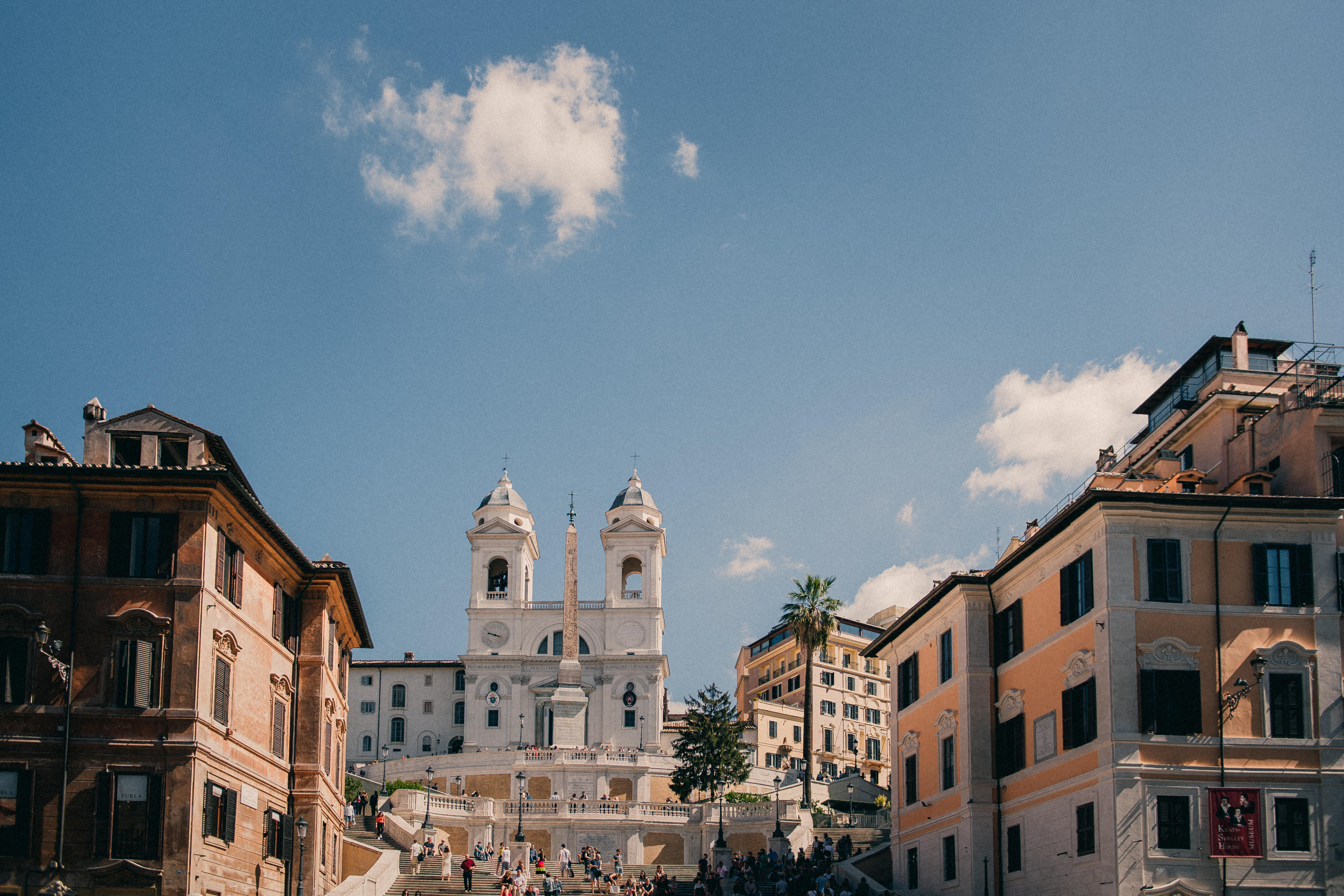

 Emelia Trop-Longinus, a full-time student at John Cabot University in Rome, Italy, is facing the Colosseum and dramatically sinking to her knees. She does not want to leave Rome.
Emelia Trop-Longinus, a full-time student at John Cabot University in Rome, Italy, is facing the Colosseum and dramatically sinking to her knees. She does not want to leave Rome.
“I’m sorry. I have to go. Please don’t take offense – it’s not you, it’s me,” says Trop-Longinus.
She will be returning to Rome after winter break. Other students are not so lucky.
Students from all over the world come to JCU to study for a semester. At the end of the semester, these study abroad students are faced with the challenge of going back to their home countries. This transition away from the romantic city of Rome often feels uneasy to them – like a break-up.
“It’s kind of like a summer love,” says Mika Topitzes, a 22-year-old study abroad student at JCU who is originally from Wisconsin, USA. “You know that your time with them will end but you don’t want to believe that it will end. Before you know it, though, it's over.”
When the students arrived at their housing on August 24, time seemed to be in abundance. But as the move-out date of December 10 crept closer, students were left to wonder: what happened to the time?
“The month of October could not have been slower. I think we were expecting November to be the same way, but it was almost over before it even began,” says Jana McEvoy, a 21-year old full-time student at John Cabot.
In October, the anticipation of the results of the American presidential election results had gripped the students, especially those from the US. Once the results had been announced during the first week of November, for many students, the idea of going home at the end of the semester soured.
“I still can’t believe Trump won. From this side of the earth, it feels as though America has played a prank on us,” says McEvoy of the unexpected win of Republican nominee Donald J. Trump against Democratic nominee Hillary Clinton. American students are now faced with the added challenge of going back to a divided country, and perhaps a divided family, group of friends, or community.
The process of re-assimilation will be difficult for many returning study abroad students, mainly due to the differences in American culture and Italian culture. Now, the struggle will no longer be to pronounce Italian words correctly, but to not correct other people’s pronunciation of Italian words. Craving Italian culture is a problem most students foresee, as they walk through the uneven cobblestone streets wondering – How do you say goodbye to this city? How do you say goodbye to this life you’ve created with the city? What will you do without this city? How will you get anywhere without Rome’s underfunded tram system? Is there any other street on which you can get both decadent limoncello and a Prada bag? No leather bag will feel as authentic. No pasta will taste as good. No other city has enough smoke to inhale. No language will ever sound as melodic. No other city has the Colosseum, the Trevi fountain, the Pantheon, the Spanish Steps…. You’re going to miss this place.
Many students plan to return to Rome, and not let her be the one that got away. Until then, they will swallow their pride, along with their overcooked pasta and their "latte" (biting their tongues about the fact that latte means 'milk' in Italian), and try their hardest to re-assimilate peacefully.

Pooja Mandagere
Computer Information Systems and Communication Studies Major
Western Michigan University - Study Abroad Fall 2016
Hometown: Portage, Michigan




